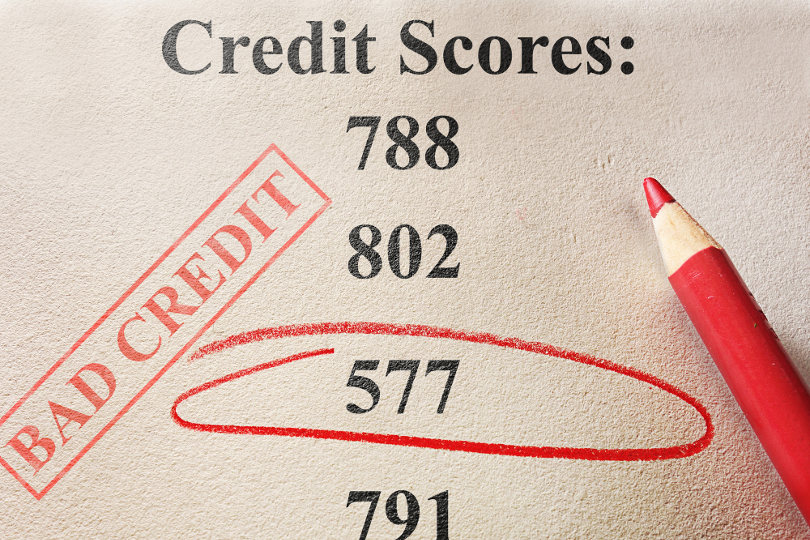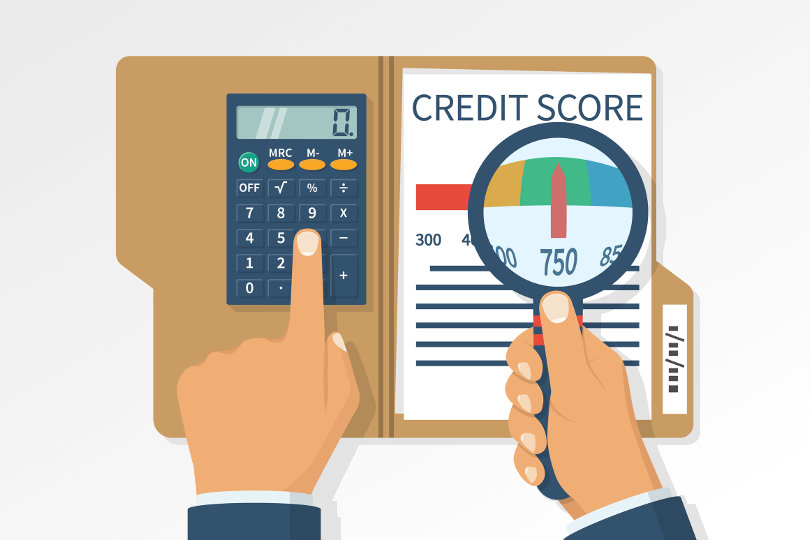Lenders are giving away credit these days like gleeful retirees handing out candy to kids on Halloween. The current lending landscape can make it much easier to secure more debt in the form of credit cards and other high-interest financing. It can also lead to frustration (after being denied) when trying to secure a mortgage, bank or low interest car loan.

Why has the lender denied your application?
You’ve been a good girl or boy – making your payments on time without any hiccups. Or maybe you were tardy at one time, but now you’ve long since grown up and realized unpaid debts have a way of coming back to haunt you over and over again?
Below are 4 things revealed during all “hard checks” on your credit that lenders can see, but which you might be entirely unaware of:

1. Conflicting or spotty details about your credit history
According to the credit reporting agency, Experian:
“While everything else may show strong credit management, the lender may be reluctant to approve your application simply because it doesn’t have enough information upon which to base its decision.”
And we’ve all been taught that lenders are only looking for the actual bad stuff! Truth is, it’s the things they can’t find out about you that can hurt you most:
- Social Security/Social Insurance number: A misprint during the application process is all it takes. Write a number “7” that looks like a “1” and your application is rejected.
- Birth date: Same as above, one small misprint and the credit bureaus won’t be able to connect the dots properly.
- Given name/Married name: A problem that almost exclusively affects those who choose to take on their spouse’s surname. Using your new surname after marriage – or using your maiden name soon after a divorce can really mess up an application if the reporting agency doesn’t yet recognize the name you’re using currently.
- Employment history: You may have worked at your job for 8 years making $70,000 annually. However, if your credit report mistakenly claims you’ve only worked there for 3 years, this makes for a red flag to lenders that can lead to a denial.
How to avoid this problem:
The only way around these and other inconsistencies is to monitor your credit regularly, find the mistakes and contact a credit repair advocate to help smooth out the details.
Waiting until you need a loan can cause you even more problems. The more hard checks that are run, and the more denials on your record, the more time it will take to secure financing from anyone – even after the discrepancies are fixed.

2. Having co-signed loans on your report
Most people who co-sign a loan for a friend or relative do so believing the loan will be kept in good standing. In most cases, usually it is. How much that loan amounts to can be a really big deal though. Even a $5,000 car loan can be a red flag to lenders, because you’re on the hook for the entire amount so far as any lender or reporting agency is concerned.
Anything that disrupts your debt-to-income ratio can spell disaster when you yourself need to secure a loan; particularly when it comes to low-interest bank loans, mortgages, and automotive dealer financing which are notoriously more difficult to secure. Even worse, the co-signer’s ability to pay directly effects your credit rating, particularly considering they don’t have the means to take on the debt without your help.
How to avoid this problem:
There’s no easy way around this issue. You want to help those you care for, so refusing to help may not be an option.
If you can afford to loan whatever amount is requested in lieu of co-signing, that’s a great way to protect your credit rating.
Another option would be to take out the loan entirely in your name and have them direct the payments to you every month. This way you’re rating isn’t sullied by their inability to pay back the debt.

3. Too many hard checks in too short of a time window
This scenario is hard for most of us to avoid, especially when every business on the planet is offering cards with juicy benefits like rewards points, free products, and annual cashback deals. However, none of these businesses will tell you that every time they run a check on your credit, it puts up a big red flag for the Big 3 (Experian, Equifax and Trans Union).
Too many checks in short order can make it look like you’re desperate to secure more debt – the assumption being you’re broke. In reality, you may just want to reap the rewards offered by various credit cards, or you may be shopping around for the best rate on a mortgage, financing, or refinancing loan.
How to avoid this problem:
If credit card apps are like a drug to you, limit getting your fix to every 3 or 4 months at a time, and apply for just 1 or 2 cards at that time.
If you’re shopping around for a loan, print out a copy of your free credit report and cart it around with you to the lenders you speak with. Ask them to give you an assessment based on what’s in front of them and not to run a hard check on you until you’ve decided on what lender you want to go with.

4. Consumer Statements
These can really make for a huge spaghetti stain on an otherwise acceptable credit report. Under the Fair Credit Reporting Act (FCRA):
“The consumer has the right to add a statement to the consumer’s file disputing the accuracy or completeness of the disputed information.”
This is known as a consumer statement and it can do more harm than good if you don’t consult an expert before doing so.
You, as a consumer, have the right to include a brief, 100 word statement to your credit report. For instance:
“I co-signed on a student loan for my son in 2004. He was unable to pay back the loan and I was on a fixed income and unable to make good on the debt. This issue resulted in collections proceedings, affecting my own credit score in the process.”
What human being couldn’t relate to this scenario? Surely they’ll read this and give you a break. It’s not your fault, after all.
This might seem like the answer to all your problems, particularly if a divorce, illness, or a co-signer failing to pay back a debt has sullied your own credit score. However, to creditors, it just means you don’t take responsibility for your debt.
How to avoid this problem:
Consumer statements are best avoided, unless your accountant or a credit rebuilding advocate suggests including a statement could actually benefit you. They make you look like someone who’s always looking for an excuse to get off the hook, and most often result in more denials than approvals.







